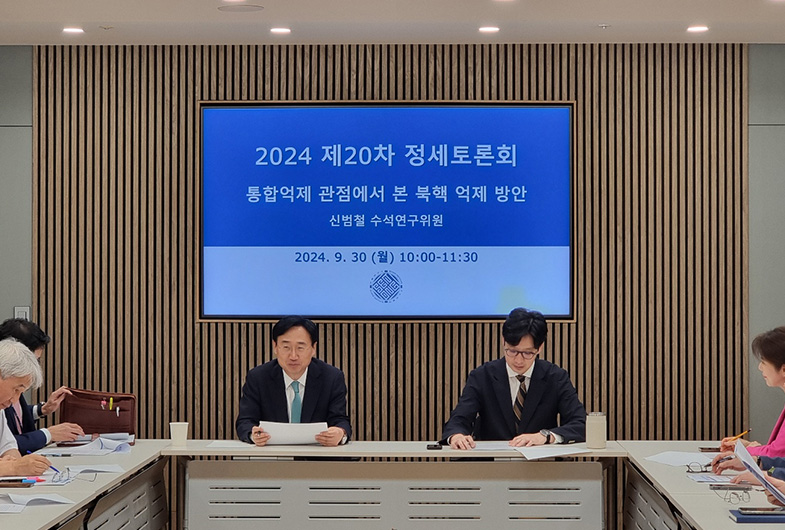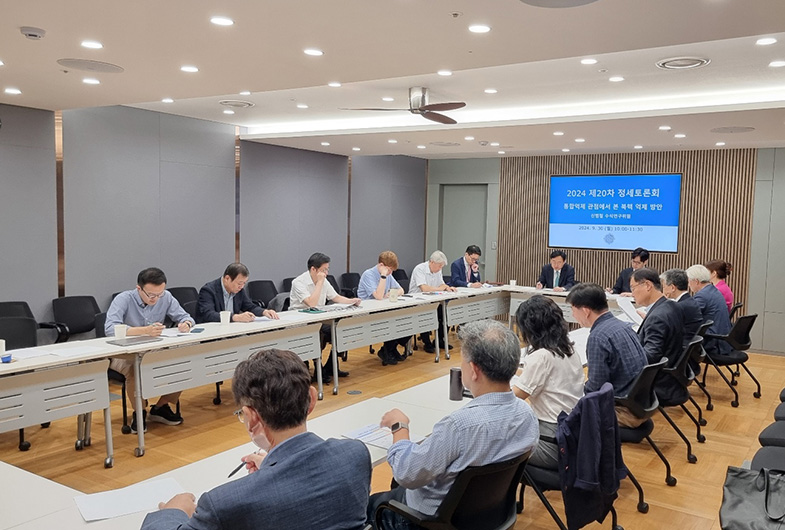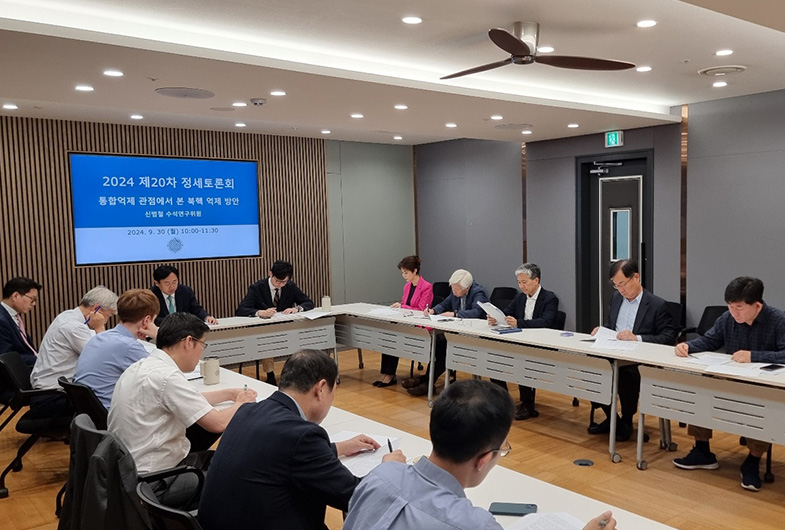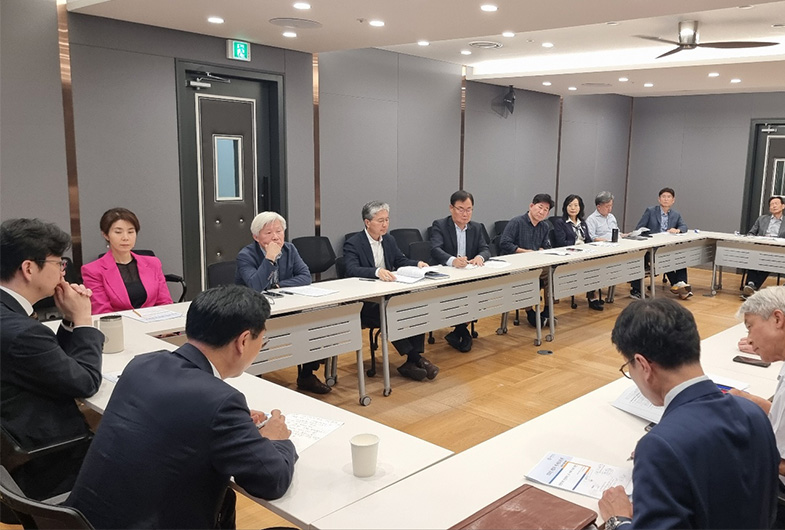On September 30th, Beum-Cheol Shin, Principal Fellow, gave a presentation on "How to Deter North Korea from an Integrated Deterrence Perspective" at the 20th Colloquium.
The discussion was moderated by Sung-won Lee, Director of the Center for Security Strategy
Efforts to strengthen extended deterrence between South Korea and the United States are bearing fruit, with the establishment of the Extended Deterrence Strategy and Consultation Group(EDSCG), which comprehensively discusses at both the diplomatic and defense levels, the launch of the Nuclear Consultative Group(NCG), and progress on practical tasks such as developing joint guidelines for dealing with North Korea.
However, given North Korea's nuclear capabilities and strategic provocations, as well as the expected changes in the next administration's foreign strategy after the U.S. presidential election, and the possible changes in alliances and deterrence strategies that will result, South Korea's nuclear deterrence strategy needs to be examined again.
The U.S. Biden administration's National Defense Strategy, published in October 2022, proposes the concept of Integrated Deterrence. This concept means that the United States will integrate its national capabilities and international capabilities at the same time to strengthen deterrence against countries or forces that challenge the United States. It is characterized as a comprehensive approach that integrates various areas of U.S. government capabilities at the national level and is not driven by military objectives against a hostile adversary but rather operates at the national level, and the integration of national capabilities should result in the prevention of actual hostilities.
Integrated deterrence is still a developing concept, but its utility in the context of North Korean nuclear deterrence is significant. It provides a strategic perspective that the South Korean government should pursue in the face of North Korea's increasingly advanced nuclear capabilities. First, integrated deterrence offers a logical basis for pursuing North Korean denuclearization and nuclear deterrence together from a comprehensive perspective. Furthermore, it helps to strengthen South Korea's military capabilities, and the concepts of “integration of theater of war” and “integrating scope of conflict” suggest future changes in the U.S. military, allowing South Korea to identify opportunities and challenges that may arise in the ROK-U.S. alliance in the future and prepare countermeasures. Finally, the concepts provide a baseline for evaluating the government's current deterrence strategy and policies to ensure that they are consistent with the level, direction, and goals of our cooperation with the international community.



